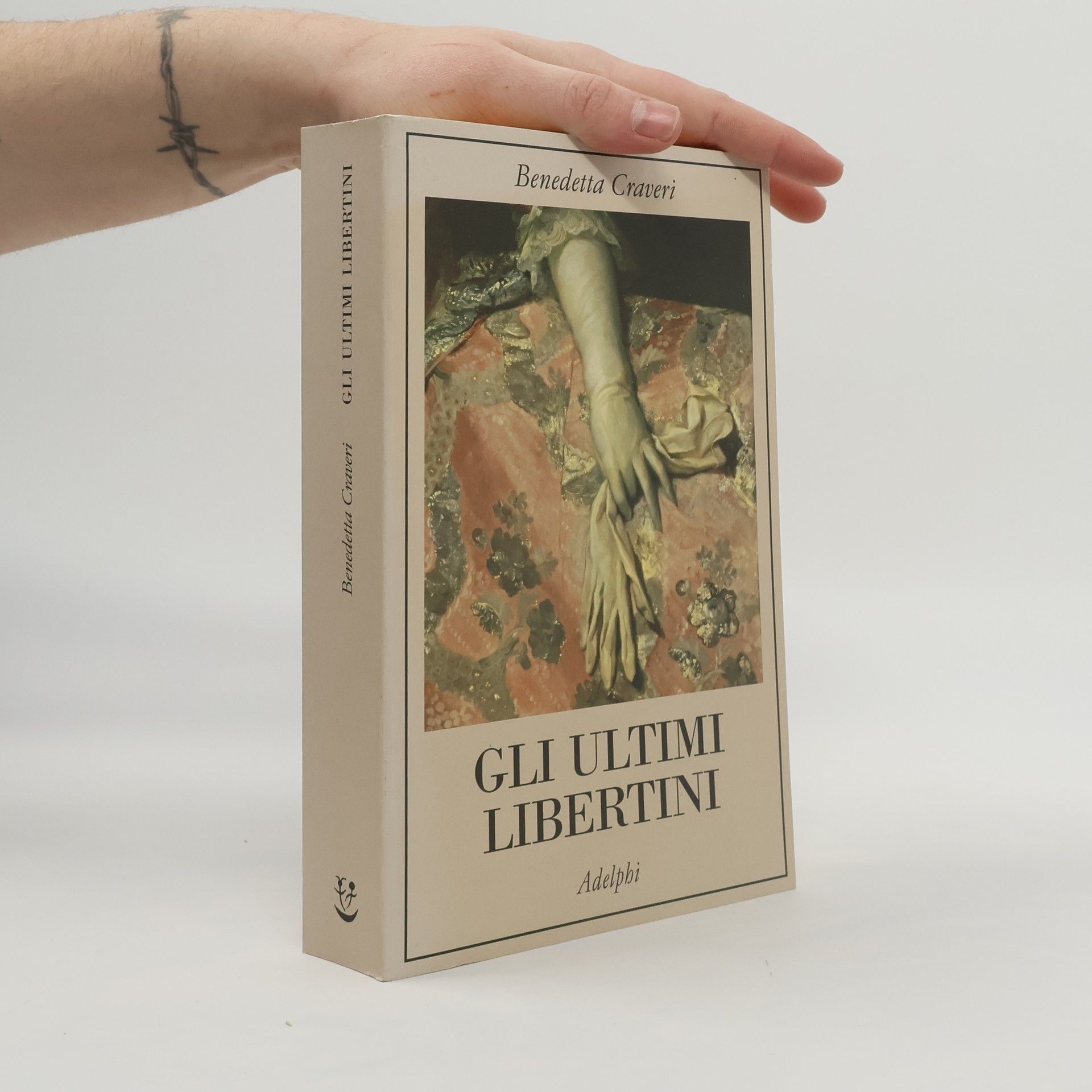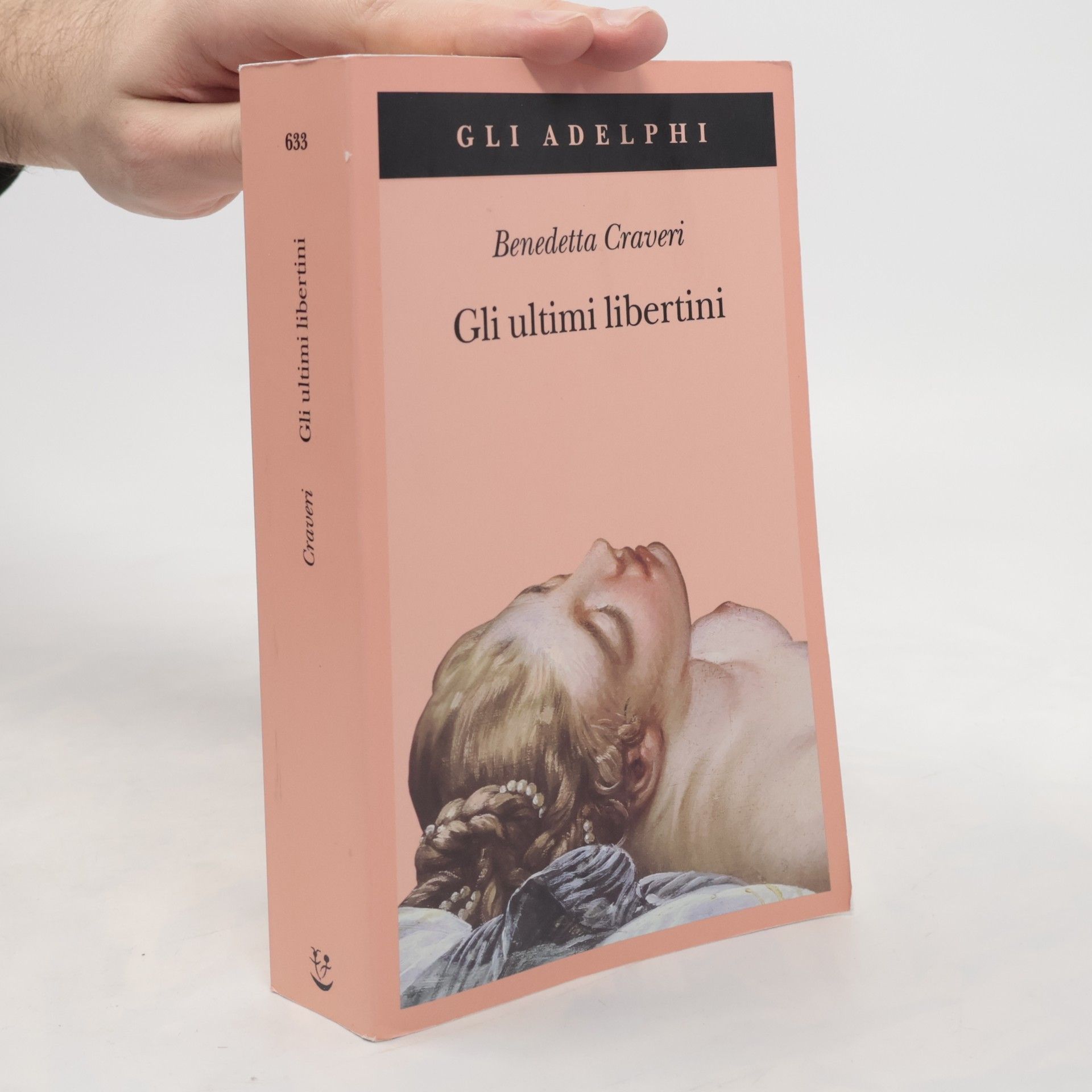Wahre und käufliche Liebe, noble Gefühle und niedrige Motive, Adelsstolz und bürgerliche Hoffart: In eindrucksvollen Porträts schreibt Benedetta Craveri eine Sittengeschichte Frankreichs, erzählt aus der Perspektive der Frauen am Königshof – von Diane de Poitiers und Katharina de’ Medici über Anna von Österreich und Maria Mancini bis zur Marquise de Pompadour und Marie Antoinette. Aus uraltem Adel die einen, einfache Bankierstöchter die anderen, hochmütige Göttinnen oder bescheidene Liebende, schamlose Karrieristinnen, stumme Dulderinnen oder impertinente Geschöpfe der Halbwelt: Geschichte aus dem Stoff, aus dem sonst nur Romane sind.
Benedetta Craveri Bücher
Benedetta Craveri, Enkelin des bekannten Philosophen Benedetto Croce, ist Professorin für französische Literatur. Ihre Arbeiten erscheinen häufig in renommierten Publikationen wie der New York Review of Books und der italienischen Zeitung La Repubblica. Craveri bietet tiefe Einblicke in die französische Literatur und Kultur. Ihre Expertise und ihr analytischer Ansatz beleuchten die Komplexität literarischer Werke.






The Last Libertines
- 680 Seiten
- 24 Lesestunden
In the preface, Benedetta Craveri introduces a group of young aristocrats navigating the final days of the French monarchy, where elite members grappled with reconciling their privileged lifestyles with Enlightenment ideals of justice, tolerance, and social transformation. The narrative centers on seven emblematic characters, chosen for the compelling nature of their lives and loves, as they consciously confront the crisis of the ancien régime while envisioning a new world. These figures—duc de Lauzun, comte de Segur, vicomte de Segur, duc de Brissac, comte de Narbonnes, comte de Vaudreuil, and chevalier de Boufflers—embody aristocratic virtues such as pride, courage, elegance, culture, spiritedness, and conviviality. They are not only masters of seduction but also enlightened individuals eager to contribute to the impending societal changes. However, the arrival of the French Revolution led to their downfall, resulting in poverty, exile, and even execution. Through the intertwined lives of these seven lesser-known historical figures, Craveri illuminates a lost civilization and captures a tumultuous era that resonates with contemporary challenges.
The Age Of Conversation
- 508 Seiten
- 18 Lesestunden
Now in paperback, an award-winning look at French salons and the women who presided over them In the seventeenth and eighteenth centuries, between the reign of Louis XIII and the Revolution, French aristocratic society developed an art of living based on a refined code of good manners. Conversation, which began as a way of passing time, eventually became the central ritual of social life. In the salons, freed from the rigidity of court life, it was women who dictated the rules and presided over exchanges among socialites, writers, theologians, and statesmen. They contributed decisively to the development of the modern French language, new literary forms, and debates over philosophical and scientific ideas. With a cast of characters both famous and unknown, ranging from the Marquise de Rambouillet to Madame de Sta‘l, and including figures like Ninon de Lenclos, the Marquise de Sevigne, and Madame de Lafayette, as well as Pascal, La Rochefoucauld, Diderot, and Voltaire, Benedetta Craveri traces the history of this worldly society that carried the art of sociability to its supreme perfection–and ultimately helped bring on the Revolution that swept it all away.
Gli Adelphi - 633: Gli ultimi libertini
- 620 Seiten
- 22 Lesestunden
Gli ultimi libertini
- 620 Seiten
- 22 Lesestunden
«Questo libro» annuncia Benedetta Craveri nella Prefazione, «racconta la storia di un gruppo di aristocratici la cui giovinezza coincise con l'ultimo momento di grazia della monarchia francese». Sette personaggi emblematici, scelti per il «carattere romanzesco delle loro avventure e dei loro amori», vivono la crisi della civiltà dell'Antico Regime con uno sguardo verso il nuovo mondo in formazione. Sfruttando le qualità della loro casta – «fierezza, coraggio, eleganza, cultura, spirito» – il duca di Lauzun, i conti di Ségur, Brissac, Narbonne, Vaudreuil e il cavaliere di Boufflers non solo eccellono nell'arte della seduzione, ma aspirano a un ruolo nei cambiamenti in atto. Dopo il 1789, affrontano le conseguenze delle loro scelte – povertà, esilio, patibolo – mantenendo sempre il loro inconfondibile panache. Con «grazia somma della cultura, curiosità, pensiero e scrittura magnifica», l'autrice di Amanti e regine esplora queste sette vite parallele fino al momento in cui tutte convergono – la Rivoluzione – dopo la quale ciascuno degli «ultimi libertini» seguirà il proprio destino.